
Kód: 04639567
Working-Class Hollywood
Autor Steven J. Ross
This path-breaking book reveals how Hollywood became "Hollywood" and what that meant for the politics of America and American film. "Working-Class Hollywood" tells the story of filmmaking in the first three decades of the twentiet ... celý popis
- Jazyk:
 Angličtina
Angličtina - Väzba: Brožovaná
- Počet strán: 392
Nakladateľ: Princeton University Press, 1999
- Viac informácií o knihe

68.26 €

Skladom u dodávateľa v malom množstve
Odosielame za 10 - 15 dní
Potrebujete viac kusov?Ak máte záujem o viac kusov, preverte, prosím, najprv dostupnosť titulu na našej zákazníckej podpore.
Pridať medzi želanie
Mohlo by sa vám tiež páčiť
Darčekový poukaz: Radosť zaručená
- Darujte poukaz v ľubovoľnej hodnote, a my sa postaráme o zvyšok.
- Poukaz sa vzťahuje na všetky produkty v našej ponuke.
- Elektronický poukaz si vytlačíte z e-mailu a môžete ho ihneď darovať.
- Platnosť poukazu je 12 mesiacov od dátumu vystavenia.
Viac informácií o knihe Working-Class Hollywood
Nákupom získate 168 bodov
 Anotácia knihy
Anotácia knihy
This path-breaking book reveals how Hollywood became "Hollywood" and what that meant for the politics of America and American film. "Working-Class Hollywood" tells the story of filmmaking in the first three decades of the twentieth century, a time when going to the movies could transform lives and when the cinema was a battleground for control of American consciousness. Steven Ross documents the rise of a working-class film movement that challenged the dominant political ideas of the day. Between 1907 and 1930, worker filmmakers repeatedly clashed with censors, movie industry leaders, and federal agencies over the kinds of images and subjects audiences would be allowed to see. The outcome of these battles was critical to our own times, for the victors got to shape the meaning of class in twentieth- century America.Surveying several hundred movies made by or about working men and women, Ross shows how filmmakers were far more concerned with class conflict during the silent era than at any subsequent time. Directors like Charlie Chaplin, D. W. Griffith, and William de Mille made movies that defended working people and chastised their enemies. Worker filmmakers went a step further and produced movies from "A Martyr to His Cause" (1911) to "The Gastonia Textile Strike" (1929) that depicted a unified working class using strikes, unions, and socialism to transform a nation. J. Edgar Hoover considered these class-conscious productions so dangerous that he assigned secret agents to spy on worker filmmakers.Liberal and radical films declined in the 1920s as an emerging Hollywood studio system, pressured by censors and Wall Street investors, pushed American film in increasingly conservative directions. Appealing to people's dreams of luxury and upward mobility, studios produced lavish fantasy films that shifted popular attention away from the problems of the workplace and toward the pleasures of the new consumer society. While worker filmmakers were trying to heighten class consciousness, Hollywood producers were suggesting that class no longer mattered. "Working-Class Hollywood" shows how silent films helped shape the modern belief that we are a classless nation.
 Parametre knihy
Parametre knihy
Zaradenie knihy Knihy po anglicky The arts Film, TV & radio Films, cinema
68.26 €
- Celý názov: Working-Class Hollywood
- Podnázov: Silent Film and the Shaping of Class in America
- Autor: Steven J. Ross
- Jazyk:
 Angličtina
Angličtina - Väzba: Brožovaná
- Počet strán: 392
- EAN: 9780691024646
- ISBN: 0691024642
- ID: 04639567
- Nakladateľ: Princeton University Press
- Hmotnosť: 614 g
- Rozmery: 238 × 157 × 25 mm
- Dátum vydania: 14. December 1999
Obľúbené z iného súdka
-

The Animator's Survival Kit
37.78 € -2 % -
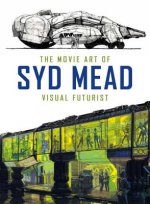
Movie Art of Syd Mead: Visual Futurist
38.40 € -23 % -

Animator's Survival Kit
43.86 € -23 % -

The Celestine Prophecy
12.35 € -23 % -

Star Wars - the Jedi Path
18.83 € -23 % -

The Art of Tangled
30.78 € -19 % -

Filmmaker's Handbook, The (fifth Edition)
34.38 € -17 % -

Fantastic Mr. Fox
29.44 € -19 % -
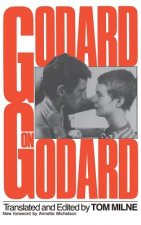
Godard On Godard
17.39 € -12 % -
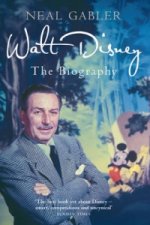
Walt Disney
17.80 € -18 % -
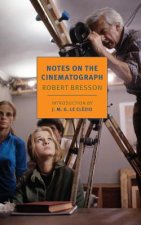
Notes On The Cinematograph
13.48 € -23 % -

Saw
39.84 € -
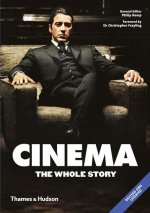
Cinema: The Whole Story
28.51 € -20 % -

Film in Five Seconds
16.67 € -23 % -
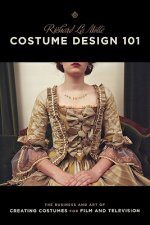
Costume Design 101
25.32 € -4 % -

Sick in the Head
16.36 € -13 % -

Blade Runner 2049 - Interlinked - The Art
39.63 € -21 % -

Mean Girls: The Burn Book Hardcover Ruled Journal
18.94 € -7 % -

Ghostbusters: Proton Pack and Wand
12.66 € -9 % -

The Art and Soul of Dune
54.67 € -23 % -

Alien: The Archive - The Ultimate Guide to the Classic Movies
38.40 € -23 % -

Donnie Darko Book
19.35 € -6 % -
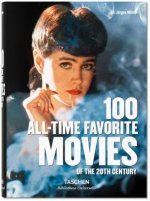
100 All-Time Favorite Movies of the 20th Century
20.48 € -11 % -
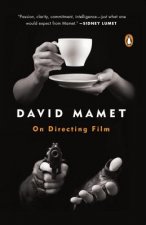
On Directing Film
15.44 € -16 % -

Lighting for Cinematography
32.43 € -15 % -

The Art of Princess Mononoke
31.40 € -14 % -

Art of How to Train Your Dragon 2
35 € -21 % -

Art of Mad Max: Fury Road
31.09 € -13 % -

The Grand Budapest Hotel
14.51 € -23 % -

Spiderman Into the Spider-Verse
37.57 € -19 % -
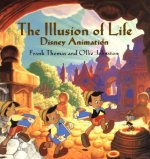
The Illusion of Life : Disney Animation
59.61 € -3 % -

Alien: The Blueprints
29.75 € -22 % -

Jurassic Park
51.58 € -9 % -

Star Trek: Light-Up Starship Enterprise
12.66 € -9 % -

Interstellar
24.29 € -15 % -
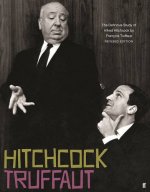
Hitchcock
20.79 € -20 % -

Character Animation Crash Course!
36.85 € -

Vision
34.69 € -

Archive of Magic: the Film Wizardry of Fantastic Beasts: The Crimes of Grindelwald
36.34 € -15 % -
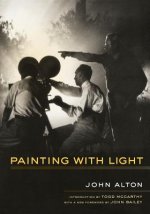
Painting With Light
35.62 € -2 % -

Princess Mononoke: The First Story
29.44 € -19 % -

The Anime Art of Hayao Miyazaki
29.54 € -
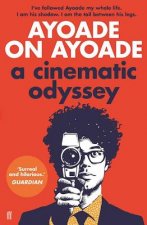
Ayoade on Ayoade
12.35 € -23 % -
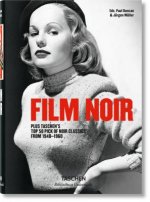
Film Noir
21.41 € -19 % -

Jurassic World: The Ultimate Visual History
48.49 € -23 % -

Jedi Vs. Sith
26.25 € -16 % -

Art of Inside Out
26.04 € -19 % -

Isle of Dogs
17.91 € -16 % -
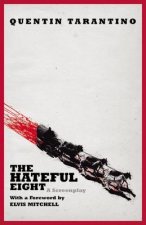
Hateful Eight
15.44 € -21 %
Osobný odber Bratislava a 2642 dalších
Copyright ©2008-24 najlacnejsie-knihy.sk Všetky práva vyhradenéSúkromieCookies



 21 miliónov titulov
21 miliónov titulov Vrátenie do mesiaca
Vrátenie do mesiaca 02/210 210 99 (8-15.30h)
02/210 210 99 (8-15.30h)